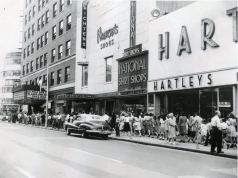Critical Race Theory is becoming a prominent topic across the country, and many politicians are getting it wrong.
At a rally last year, then-President Donald Trump stated, “Critical Race Theory is a Marxist doctrine that rejects the vision of Martin Luther King, Jr.”
Professor and scholar Kimberlé Crenshaw is one of the founders of the theory, which was developed in the late 1980s. She says the former president’s statement is not true.
In short, the theory is an approach based on the idea that the history of white supremacy has a very real and lasting impact on our society and institutions today.
“Critical Race Theory just says, ‘Let’s pay attention to what has happened in this country, and how what has happened in this country is continuing to create differential outcomes,’ so we can become that country that we say we are,” said Crenshaw.
So why is the term causing such a stir in conservative political circles today? Opponents are concerned that Critical Race Theory will be forced on students. To date, at least eight states have taken steps to ban topics surrounding critical Race Theory without naming it.
To be clear, Critical Race Theory does not say a person is racist because of the color of their skin or that anyone should be ashamed of themselves because of the color of their skin. Still, parents who hear the term are speaking out at school board meetings.
At FIU in West Miami-Dade, administrators created a division of diversity, equity and inclusion to have these discussions. Their site states, “Our goal is to build an intellectually vibrant climate that sustains the inclusiveness and engagement of our diverse community.”































